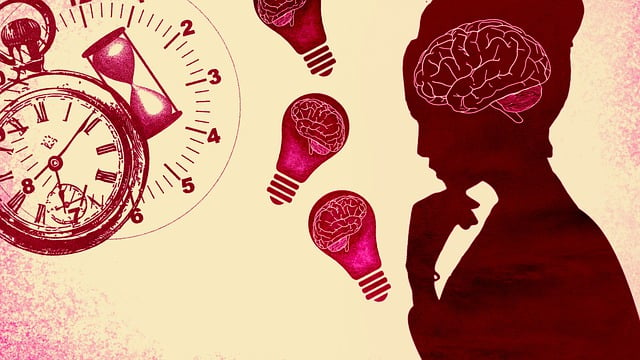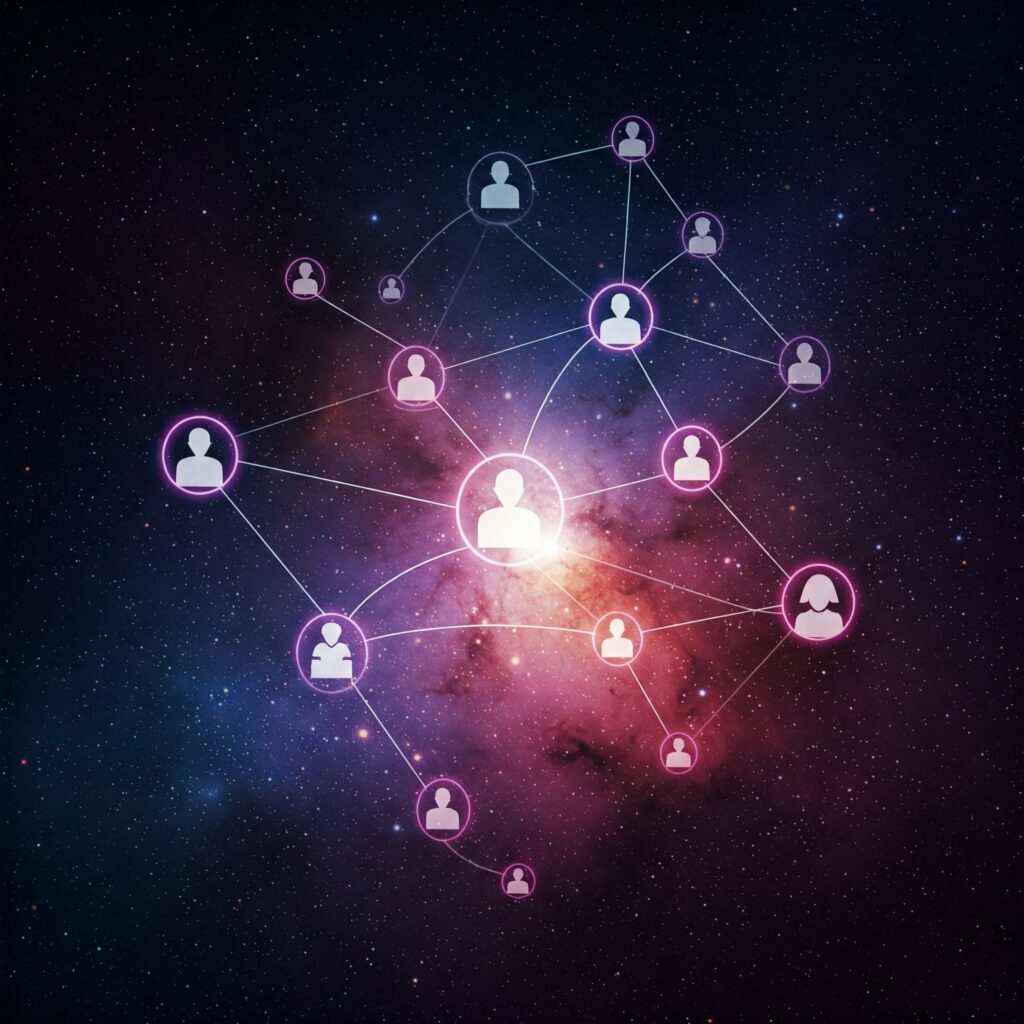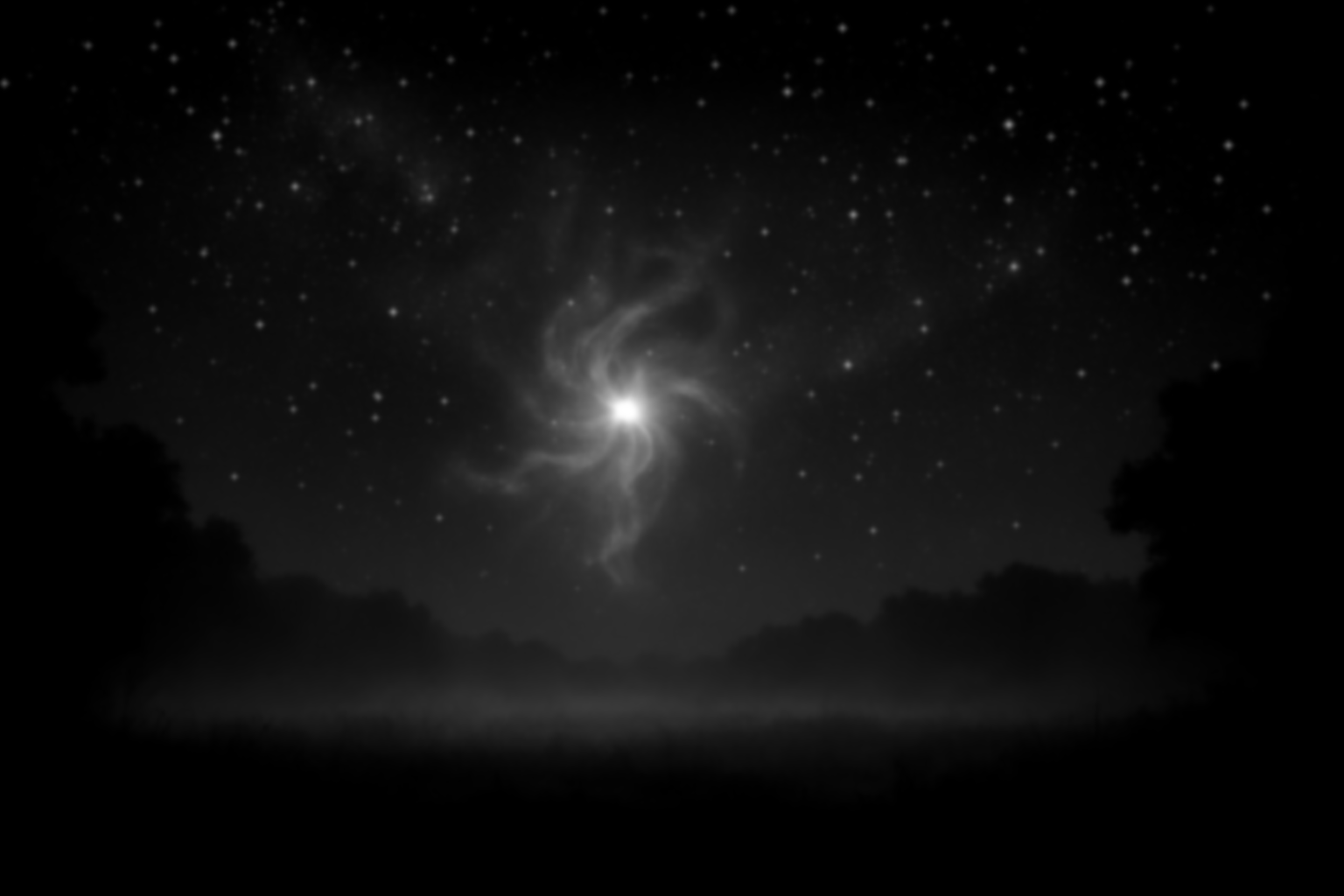I found myself, once again, deep in thought — the kind that only seems to surface under the gentle pull of a good indica strain. My mind drifted to the stars, as it often does, and I began contemplating the cosmic dance of atoms: how everything we are was once forged in stellar furnaces, and how, one day, we’ll return to that same celestial crucible. But that led me to a deeper, stranger question — one that lingers like a vapor trail: if our bodies are made of star-stuff, what about our consciousness? Does it have atoms of its own? Or is there some kind of consciousness field, a vast and unseen current of awareness, that we’re all experiencing together?
What if my imagination isn’t really mine?
What if it’s more like a tangle of signals, echoes from every mind that ever was?
That kind of idea doesn’t just come and go — it sticks. It feels eerie… but kind of familiar.
If what we call “imagination” is really just us tuning into an ancient broadcast — a scrambled mix of everything humanity has ever thought, felt, or feared — then maybe none of our “original” ideas are actually original. Maybe we’re just rearranging the puzzle pieces of a memory that’s bigger than any of us. A weird old deck of cards we all somehow share.
That flips the script on creativity. It’s not pulling something out of thin air. It’s more like reconnecting with something that’s always been there, waiting. And in that view, art and stories aren’t just self-expression — they’re ancient signals we’re picking up, passing along, and remixing.
So, here’s the question: can we tune in to that collective memory on purpose?
I think we can — at least a little. No hard science, sure. But something about it just… clicks.
Think about how the same symbols, myths, and story beats pop up across different cultures and times. Carl Jung talked about this with his “collective unconscious” and those archetypes that seem baked into the human experience. When you stumble on one of those patterns — in a book, in a dream, in a film — it doesn’t feel new. It feels like you already knew it.
And look at how creativity works: those flashes of inspiration, those sudden ideas that just drop in out of nowhere. That’s not logic — that’s something else. Whether it’s meditation, zoning out, or those strange half-awake dreams… sometimes it feels less like you’re thinking and more like you’re remembering something ancient.
Whenever we dive into other cultures, old stories, lost music, or forgotten art, we’re not just learning — we’re waking something up. It’s like brushing off dust from memories that don’t belong to us, but somehow feel like they do.
And yeah, altered states of consciousness open even more doors. From ancient shamans to modern psychedelics, humans have always tried to change their state of mind to get a glimpse of… something else. Some who’ve gone down that road report deep, soul-shaking moments where they feel plugged into a truth bigger than themselves.
Even the internet, in a weird way, works like a modern hive-mind. When I scroll through centuries of music, art, and human stories, it’s more than just content. It feels like tapping into memory — not mine, but ours.
Now, this idea of a shared consciousness is still out in the speculative zone — but I believe we can touch it, in flashes, with intention, practice, and curiosity. And when I do, my creative work stops feeling like mine and starts feeling like it’s part of something older. Something echoing through time.
All of it — psychology, art, myth, culture, tech — starts to feel like pieces of a moving puzzle. A living system. Maybe that’s the real shape of collective memory: not a tidy archive, but a swirling, unpredictable, half-dreamed tapestry.
Maybe this “consciousness” isn’t just thoughts inside our heads. Maybe it’s a kind of psychic current flowing through everything — a pulse we all feel, sometimes without even realizing it.
Jung’s archetypes hit hard here. These symbols feel ancient, like fossils from the mind itself. When someone dreams about a snake, or a shadowy figure, or a beam of light, it doesn’t feel random. It feels like brushing up against the structure of the psyche — something buried deep.

And those altered states? Whether it’s psychedelics, deep meditation, ritual, or just getting completely lost in your work — those moments seem to crack open a doorway. That old saying comes to mind: “It didn’t come from me; it came through me.”
I’ve had moments like that. When an idea hits and it doesn’t feel like I made it up — it feels like I remembered it. Dreams that carry emotion way bigger than my own story. Music that unlocks grief or joy that doesn’t seem like mine. Sometimes writing feels more like I’m just recording something that’s already out there.
That’s the good stuff. That’s worth digging into. Maybe even worth its own chapter someday: “Tapping the Deep Imagination: Drinking from the Collective Well.”
Could déjà vu be a glitch… or a glimpse?
Through this lens, déjà vu starts looking less like a brain hiccup and more like a moment of signal clarity — a weird flicker where you catch a memory that isn’t yours. What if that eerie familiarity doesn’t come from your life, but someone else’s? A stray thought drifting across the network. A moment where the walls between minds get thin. Déjà vu might be a psychic echo — a ripple from the deep.
What if the Mandela Effect is part of it too?
Now we’re diving into the uncanny. The Mandela Effect — people remembering different versions of reality. Berenstein vs. Berenstain. Mandela dying in prison vs. not. What if those aren’t just memory errors… but bleed-through from alternate versions of the collective field? Timelines that forked. Archives that got scrambled. Like an old VHS tape that recorded over itself… but left ghost images behind. Some of us might be tuned in just enough to feel that discord — to notice the static between versions. It’s weird. It’s wild. And honestly, kind of chilling.
Are dreams a nightly login?
If all this is true, dreams could be our nightly login to the mainframe. When we sleep, maybe we stop broadcasting and start receiving. That’s why dreams feel so bizarre and yet real. We might not just be sorting through our own memories — we might be walking through the psychic halls of humanity. I’ve had dreams that didn’t feel like mine. You probably have too. Maybe that’s the collective whispering.

What does death mean if we’re all connected?
Heavy question. But also… comforting. If consciousness is shared, then death isn’t the end. It’s a return. Like a drop of water slipping back into the ocean. Your spark fades, but the signal doesn’t. Your memories, your feelings, your presence — they ripple on. Maybe in someone else’s dream. Maybe in a song. Maybe as part of a moment they’ll never quite explain. In this light, death isn’t disappearance. It’s reintegration.
So what is consciousness, really?
Are we each a single mind in a lonely universe? Or are we fragments of something vast, like sparks flying from a single flame?
Here’s how I see it:
- The Local Signal Theory: Brains make consciousness. When the brain stops, so does the show.
- The Cosmic Receiver Theory: Consciousness is everywhere. Our minds are just antennas, picking up the signal for a while.
That second one feels closer to the truth I’ve brushed up against. Maybe we don’t have consciousness. Maybe we are consciousness — little eyes on a much bigger being. A dream within a dream. Maybe the universe isn’t filled with awareness. Maybe the universe is awareness. And we are the stories it tells itself.
Whether I’m a ripple in some cosmic mind, or just a bundle of stardust having weird thoughts, I can’t shake the sense that something deeper is going on — something strange and just beyond reason. Humanity has been asking the same questions forever: Where are we going? How did we get here? Why are we here? Religion tries to give answers. Maybe existence isn’t something to solve, but something better left to our imaginations.

